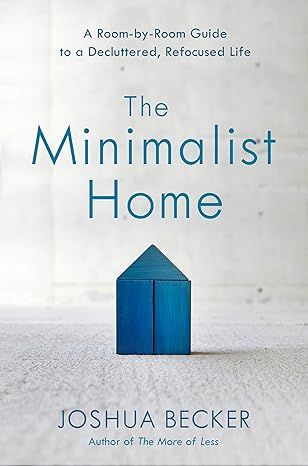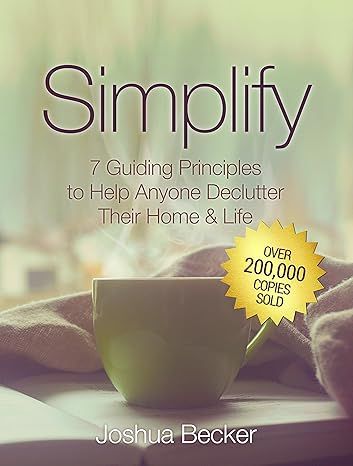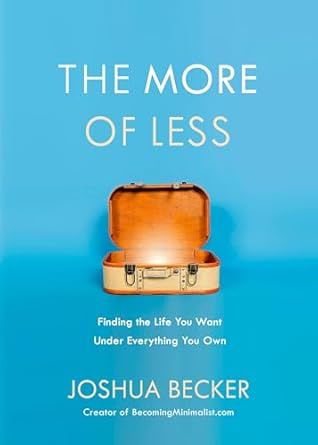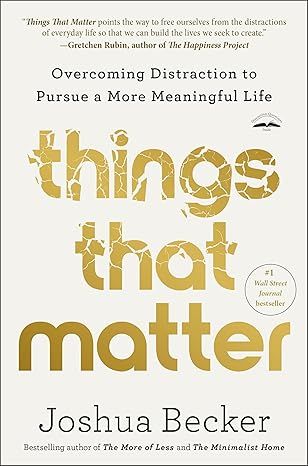The Minimalist Home: A Room-by-Room Guide to a Decluttered, Refocused Life
4.5
-
2,712 ratings
USA TODAY BESTSELLER • A popular minimalist blogger and author of The More of Less shows you how to methodically turn your home into a place of peace, contentment, and purposeful living.
One of today's most influential minimalist advocates takes us on a decluttering tour of our own houses and apartments, showing us how to decide what to get rid of and what to keep. He both offers practical guidelines for simplifying our lifestyle at home and addresses underlying issues that contribute to over-accumulation in the first place. The purpose is not just to create a more inviting living space. It's also to turn our life's HQ—our home—into a launching pad for a more fulfilling and productive life in the world.
Kindle
$8.99
Available instantly
Audiobook
$0.00
with membership trial
Hardcover
$11.29
Ships from
Amazon.com
Payment
Secure transaction
ISBN-10
1601427999
ISBN-13
978-1601427991
Print length
256 pages
Language
English
Publisher
WaterBrook
Publication date
December 17, 2018
Dimensions
5.72 x 0.93 x 8.55 inches
Item weight
12.8 ounces
Popular highlights in this book
For something to be necessary and help you fulfill your purpose and potential, it needs to be so useful, lovely, or meaningful that you must keep it.
Highlighted by 1,658 Kindle readers
So when we ask, Do I need this? we’re actually asking, Does this help me achieve my purpose or hinder me in that pursuit?
Highlighted by 1,210 Kindle readers
In psychological theory, the endowment effect is our tendency to consider an object more important than it really is simply because we own it.
Highlighted by 782 Kindle readers
Product details
ASIN :
B07CBSVQSB
File size :
2786 KB
Text-to-speech :
Enabled
Screen reader :
Supported
Enhanced typesetting :
Enabled
X-Ray :
Enabled
Word wise :
Enabled
Editorial reviews
ECPA Bestseller
“If you are already tapped into the minimalist movement or want to get more in-depth knowledge and know-how, this is the book for you! Joshua Becker takes you through all the benefits and strategies for creating your minimalist home, and he includes practical step-by-step tactics and checklists to create and maintain your spaces. Most importantly, you will gain a complete understanding of the value that minimalism brings to you and your family.” —Ellen R. Delap, certified professional organizer and productivity consultant; president of the National Association of Productivity and Organizing Professionals
“Joshua Becker’s idea of minimalism is to create a comfortable, warm, inviting home that reflects what is most important to your family. The Minimalist Home is a great guide to help you define your vision and set your goals for how you want to live in your space. Joshua goes further than most authors to address pets, hobby areas, and outdoor spaces around the home. Throughout this book, he provides practical advice on how to keep family members engaged in the minimizing process now and in the future.” —Jacki Hollywood Brown, editor of Unclutterer.com
“Joshua Becker is the best coach I know of when it comes to teaching the skill of decluttering. Not only will his calm, clear voice guide you through the challenging task of getting rid of belongings, but he will also make you feel fabulous for doing so. He does not shy away from tough topics such as downsizing homes, renting versus buying, and adjusting one’s lifestyle to fit a space. His enthusiasm is addictive; it’s impossible to read this book without tackling your own home—and then you won’t want to stop, because as your rooms open up, so will your entire world.” —Katherine Martinko, senior writer and editor of TreeHugger.com
“Joshua provides great tips on decluttering every room and inspires readers to think deeply about what really makes a house a home.” —Francine Jay, author of The Joy of Less
“This isn’t just a book about decluttering. It’s a book about remembering what the purpose of every room is and making your home feel like the most important place on earth. Less clutter, more heart.” —Cait Flanders, author of The Year of Less
“With his signature optimistic and encouraging writing style, Joshua provides a valuable, practical road map for those who are hoping to declutter their homes and take control of their lives.” —Katie Wells, founder of WellnessMama.com
“The result of reading and implementing The Minimalist Home together as a family is a household filled with fewer distractions and better conversations. Having fewer barriers between us, our family is now sharing more stories and laughs. We’ve learned that we don’t need more things from the store; we need more of each other in our lives. And this book is the guide that got us there.” —Marc and Angel Chernoff, New York Times best-selling authors of Getting Back to Happy
“It’s a bit ironic that I’m recommending you acquire one more thing to explore living more fully by owning less: Joshua Becker’s book The Minimalist Home. But I am. It’s exactly what we all need—a slim read that’s packed with all-new information, authentic stories, and tried-and-true solutions to life’s relentless clutter. Joshua speaks candidly (and personally!) about the challenge of expanding our lives by minimizing our stuff. The Minimalist Home earns every inch. Can you say that about everything else in your home?” —Mary Kay Buysse, executive director of National Association of Senior Move Managers
“Since 2005 I have been following in Brazil the growth of people’s interest in trying to live in a simpler, more practical, and more organized manner. Joshua’s clear, instructive book innovatively shows how minimalism can transform the way we live in our homes, increasing our quality of life. I recommend it as essential reading for everyone.” —José Luiz Cunha, entrepreneur; founder of OZ! Organize Your Life; and creator of Personal Organizer Brazil, the largest event in Latin America for professional organizers
“This book breaks down the decluttering process into easy-to-follow steps. An essential read for any aspiring minimalist!” —Emma Loewe, home editor at MindBodyGreen.com
Read more
Sample
Chapter 1, Minimalism Makeover.
I grew up in Aberdeen, South Dakota, where author L. Frank Baum lived for a while in his adulthood. Because of living there, I learned from an early age about Baum’s most famous work, The Wizard of Oz. I’d be surprised if you don’t know the story as well. The book was a bestseller from the time its first edition came out at the beginning of the twentieth century. The 1939 film version, starring Judy Garland, is today the third most-viewed movie of all time around the world (behind Titanic and E.T.). And what’s the most famous line from the movie? Click your heels together and say it with me: “There’s no place like home.”
I know not everyone has positive associations with home. For some, home has been a place where they aren’t safe or where they feel cut down instead of being encouraged to grow. Some are ashamed of or hostile toward their home. Sadly, some don’t have a home at all.
Despite all this, the concept of home as an ideal of comfort and safety, of acceptance and belonging, is one that resonates with almost everyone. It inspires longing within us, regardless of how closely or distantly our actual homes have aligned with that ideal. We yearn to make our homes better places than they have been before, both for ourselves and for the other members of our household. There really is no place like home. It is the foremost place on earth, our life’s HQ.
Of course, the most important part of a home is the people within it, including the interplay of their relationships, how they spend their time in the home, and the dreams they nurture. But it’s also true that a house and its contents can affect the family’s quality of life either positively or negatively. And so transforming the place can transform the people.
Make Over the Concept of Home Makeover
I shake my head at those home makeover shows that are so popular on TV. You know, a couple who are discontented with their home invite a design expert to come in and evaluate the situation. The couple nervously agree to stretch their budget as far as possible to make as much of a change as they can. Then a renovation team takes over, carrying out repairs and upgrades (there’s always an obstacle that arises and creates drama), and after that the designer stages the house with new furniture, store-bought decorations, and this year’s color scheme. Finally the homeowners come back for the big reveal and get teary-eyed at their house’s new look.
I shake my head because, even though their house may look nicer, the homeowners typically wind up with just as much stuff as they had before, maybe even more. That’s all stuff that may be getting in the way of how they want to spend their days more than it’s contributing to the pursuit of their goals. I wonder, after the initial dopamine zap from the redecoration, are their lives really any different? Is their home more personal and life giving to them now, or is it just more pleasing to the eye? Or, even worse, will their renovated home require more time and money and energy for upkeep than in its previous form?
Very few of us get picked to be on TV’s home makeover shows, yet most of us who have a house or apartment go through something similar with our own homes. We’re disappointed in our living space. We’ve spent a lot of money buying stuff for our home—and a lot of time organizing, cleaning, and maintaining that stuff. And nevertheless, in the rare times we have left to simply enjoy the home, it doesn’t feel like the place we really want to live. What do we do then? If we don’t just give up hope, we most likely double down, continuing to look in all the wrong places for help. We pay attention to commercials and visit showrooms and scroll through shopping sites online, and we decide that we need more stuff or better stuff, with a different organizing and decorating plan. And when we take our best shot at making our living space better, it’s…well, it’s somewhat better in some ways, but it still doesn’t give fundamental satisfaction or kick off any lasting life change.
What if the problem isn’t that we don’t own enough stuff or aren’t managing our stuff well enough? What if the problem is that we’re living in the homes that advertisers and retailers want us to have instead of the homes that deep down we really want and need?
I’d like to suggest that what the huge majority of people in my own country—the United States—and other countries need if we are going to be content with our homes and start living more fulfilled lives is a minimalist makeover of our homes. Are you willing to come along with me and explore that idea for your home—that there is more joy to be found in owning less than we can ever find in accumulating more? I hope you will, because I know from years of experience that by getting rid of the excess stuff in every room, you can transform your home so that you feel not only free from the stress of so much clutter around you but also free to live a life focused on what you want to do with your limited years on this planet.
Consider the benefits of a minimalist makeover of your home:
You don’t have to have an interior designer to do this.
You don’t need a demo-reno team or real estate agent on your side.
You don’t need a big budget (or any budget, really), and the investment of time you make up front is something you will recoup many times over in years to come.
You just need determination—and some advice to guide you on the way!
Revolution Indoors
Over the first decade of their marriage, Shannan and her husband moved several times. But there was one constant: everywhere they went, they accumulated more and more stuff, and it was never long before a new home began to feel crowded and messy. Shannan didn’t like this situation and felt guilty but didn’t know what to do about it. She could sense a growing resentment from her husband over the clutter situation too. When company was coming over, she would move things around to give an illusion of neatness, but of course such maneuvers didn’t address the root problem that they simply owned too much stuff.
Not much changed until Shannan and her husband went on a trip from their home in the Midwest to Tennessee, where they stayed in a cabin. “With only what we packed for the week, the cabin seemed spacious and comfortable, though it wasn’t really that large,” she said. “Once we got home from the trip, I wanted that for our home—room to breathe and enjoy ourselves without things in the way.”
This was Shannan’s Aha! moment. Her trigger. Her tipping point.
I have noticed that, for most people, there is one moment when something causes them to undertake a minimalist makeover. I tell in my previous book, The More of Less, about my own trigger moment in 2008, when I was frustrated while cleaning out my garage on a Saturday and a neighbor pointed out that I didn’t need to own all that stuff.
Have you had your own minimalism Aha! moment yet? Something that has opened your eyes to the clutter issues you face at home and has pushed you to do something about them? If not, I hope this book will be that friendly shove for you.
Shannan’s cabin epiphany inspired her to finally take action on what I would call her “stuff problem.” As soon as she got home, she signed up for my online course Uncluttered and quickly began making progress on her home. She would take out ten or twelve boxes each week. Her husband got in the spirit as well, clearing out machinery and tools from his garage workshop. Their minimalist home makeover was under way.
Eventually the couple got down to some decisions about what to keep and what to toss that were tougher to make. These are the kinds of decisions that cause some people to quit decluttering before they get the full benefit (and they are some of the decisions I’m going to help you make in this book). Their progress slowed for a while, but they kept going and in the end transformed every part of their home through minimizing.
Shannan said, “Our home is now a place where my husband can come home and feel free to pursue his hobbies and for us to be the couple I know we are without fear of resentment or stress from the outside world. A sanctuary of sorts.”
But what’s remarkable is not just how minimizing has changed how they feel about their house. It’s how differently they feel about themselves. (Though I’m really not surprised.)
“To me, it’s so not about the stuff anymore,” Shannan said. “My husband has changed too. We’re bike riding now and spending more time together.”
And it goes even deeper than that. “Aside from my relationship with my husband becoming more loving,” Shannan added, “I’ve gone from being a homebody who was afraid of people and what they thought of me to being someone who wants to be a part of things. I’m consciously making efforts to stand among a group of people talking or offering help to a stranger. Looking people in the eyes when I pass them by, connecting. This is really not who I’ve been my whole life, and I feel more included in life now that I’m letting others in. How can getting rid of stuff do this? It’s really amazing.”
That’s right—how can mere minimalism change lives in a fundamental way? It seems like too much to expect. Yet I’ve seen it happen over and over. Owning less creates an opportunity to live more.
I’ve been writing my blog (Becoming Minimalist), teaching minimalism, and speaking about the joys of owning less with folks at conferences around the world for a decade now. And I’ve seen repeatedly, more times than I can recall, that there is an almost magical effect when people right-size the quantity of their possessions—in the process, the people themselves are changed in positive ways.
So although this book is about doing a minimalist makeover of your home, I’m warning you now that it may also mean making over yourself in a thousand unforeseeable, positive ways.
Means to a Better Life for All
I want to mention something before I go any further because, you see, there’s something I hate when the term minimalism crops up in conversation. What I hate is the misperception that so many people have about minimalism. Many people think of minimalism as a style of home, on a par with Colonial homes, Victorian homes, or Southwest adobe homes. A minimalist home, to them, is a boxy white house with almost nothing in it, and if you do happen to find a chair or sofa somewhere, it’s going to be really expensive—and good luck feeling comfortable sitting on it! A minimalist home, in this sense, is for people who don’t care much about coziness or comfort and definitely don’t have kids or pets or hobbies. Such a house might look good in a magazine photo spread, but who wants to live there?
Creating a minimalist home doesn’t mean you have to sacrifice your favorite design style—or even your “no-design style” or “frugal living style”—to accomplish it. In my home, for example, we still use my wife’s grandparents’ old bedroom set. It’s anything but modern in design, but it works for us. My wife, Kim, our two kids, and I got rid of a lot of things when we were transforming our home, but we didn’t get rid of everything, and we didn’t feel every room needed a different look or style than before.
What’s widely known as minimalism in architecture and interior decoration today is fine as a design style, if you happen to like it, but that’s not at all what I’m talking about here. I’m promoting an approach to owning less that you can take regardless of the style of your home. It’s not about making an artistic statement or glorifying emptiness. Instead, it’s about transforming your home so that you can transform your life.
Minimalism, as I’m referring to it, is not about taking something away from you; it’s about giving something to you. My definition of minimalism is “the intentional promotion of things we most value and the removal of anything that distracts us from them.” As I sometimes like to say, minimizing is actually optimizing—reducing the number of your possessions until you get to the best possible level for you and your family. It’s individual, freeing, and life promoting. It’s a makeover that you can do on your own, in your current house, just by getting rid of stuff.
In battling against misperceptions about minimalism, I sometimes feel like Henry Ford when he was trying to convince the masses that automobiles didn’t have to be just for the rich. Except what’s available to everybody now—in our affluent age when it is sometimes said we’ve reached “peak stuff”—is a radical and amazing home makeover courtesy of minimalism. This is an idea whose time has come. Minimalism isn’t just for the few who happen to have some spartan quirk in their personalities; it’s for everyone. Homes everywhere would benefit from a thoughtful and deliberate reduction of their possessions load.
So that’s how I’ve written The Minimalist Home—with everybody in mind.
This book is for you if you’re single or married.
It’s for you if you are childless, have one or more kids at home, or have an empty nest where your kids and grandkids come back to visit you from time to time.
It’s for you if you have an apartment, condo, town house, duplex, detached single-family dwelling, cottage, trailer home, cabin, farmhouse, houseboat, or mobile home.
It’s for you if you live in the United States, Australia, England, Japan, Canada, South Africa, Brazil, or anyplace else, if your home is overcrowded with stuff.
I’m not trying to make you into someone you’re not or turn you into some kind of doing-without extremist. You don’t have to live in a tiny home or wander the world living out of a backpack. (My family and I don’t.) This book is about doing a makeover to your home, wherever that home may be and whatever it may be like. Now, after minimizing, you may want to downsize to a smaller place, but you certainly don’t have to move in order to enjoy the benefits of home minimalism. You can change your environment and change your life right where you are.
Read more
About the authors
Joshua Becker
Joshua Becker and his young family were introduced to minimalism 12 years ago during a short conversation with their neighbor and he immediately became a pioneer of the Modern Minimalist Movement with his blog, Becoming Minimalist. Through his blog, Joshua’s story and writing have inspired millions around the world to find more life by owning fewer possessions. Today, based on his thoughtful and intentional approach to minimalism, he is one of the leading voices in the modern simplicity movement reaching over 2 million readers every month.
Joshua is the founder and editor of Becoming Minimalist, a website dedicated to intentional living that was named by SUCCESS Magazine as one of the top ten personal development websites.
He is also the USA Today and WSJ best-selling author of 5 books: The Minimalist Home, The More of Less, Simplify, and Clutterfree with Kids. His new book, Things That Matter, will be released in April 2022.
He is a contributor to Forbes Magazine and has appeared in the New York Times, USA Today, Boston Globe, Washington Post, Reader's Digest, the Drew Barrymore Show and countless other media outlets—speaking live on 6 different continents and for Fortune 100 countries around the US including Google, Airbnb, and SalesForce.
He is also the Founder of The Hope Effect, a nonprofit organization changing how the world cares for orphans. Currently, he lives in Peoria, AZ with his wife and two teenage children.
Read more
Reviews
Customer reviews
4.5 out of 5
2,712 global ratings
Deidre
5
Can’t Recommend Enough!
Reviewed in the United States on August 1, 2024
Verified Purchase
This book is amazing! It really teaches you that you don’t need a lot of stuff and that you can have a less stressed life by being a minimalist. I have been making changes in my life to be a minimalist, and it’s been incredible!
Avid Reader
5
A motivational burst on my journey to living better with less:
Reviewed in the United States on February 21, 2019
Verified Purchase
For me, transforming my home from an overwhelmingly cluttered space to a minimalist home is a journey. When my husband and I moved into our home, we had only one child and not much stuff. The space was light and airy and cleaning up took no time at all. Now, several kids and almost 20 years later our clutter collection has taken a toll on the serenity of our home and I can use any help I can get. I have been paring down my own belongings for a while now, This book helps keeps me on track and I am finally seeing results. Even our kids have pitched in. Joshua Becker's statistics about the cost of our consumerism that can be found throughout the book are very sobering. He shows the reader how a minimalist mindset can set free money and time to be used in more meaningful ways than in unnecessary purchases or frantic searches for the car keys. He inspires me to use up or get rid of surplus in my home, Today I looked at my cleaning supplies. It turns out that I have enough laundry detergent and all purpose cleaner to last for more than a year (got it on sale) and I hope my vacuum will hold up long enough to use my collection of 24 vacuum bags (yes, got them on sale)! I am not proud that it has come to this but now I will make it a game to use it all up, As I said, it is a journey. This book gets me closer to my goal. Surprisingly, I am starting to see light at the end of the tunnel, There are areas in my home where I find lasting progress. My kitchen is much more efficient. Looking at Joshua Becker's list of essential kitchen items made me purge my kitchen drawers and cabinets once more and now I have plenty counter space to prepare my meals. My closet is getting to a point that I love all my clothes, There are no cosmetics strewn around in the bathroom and my bedroom is looking much better. The only side effect I have from reading this book is that aimless shopping or "bargain hunting" has become very boring and cleaning my home is is actually fun again. Most importantly, I am forced to ponder about what I really want from life and how I can spend more quality time with family and friends.
Read more
57 people found this helpful
Happythingsbookishdreams
5
You do NOT need to be a Minimalist to benefit from this book
Reviewed in the United States on June 28, 2023
Verified Purchase
The Minimalist Home is a great read that helps provide the motivation needed to declutter your home room by room. It provides a ton of inspiration for why to declutter to walk you through the process as well as giving guiding questions to help you accomplish your decluttering goals.
Also, and very important, you do NOT need to be working towards being a full minimalist in order to benefit from this book!
I gave this book 5 stars. If this site allowed, I would actually give it 4.5 stars. My suggestion for what I felt it was missing was checklists of specific item categories to go through to help further guide individuals on their decluttering journey.
Read more
11 people found this helpful
Top Joshua Becker titles
View allSimilar Books
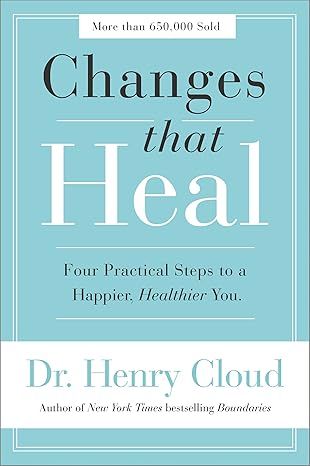
Changes That Heal: Four Practical Steps to a Happier, Healthier You
4.8
-
2,937
$0.99
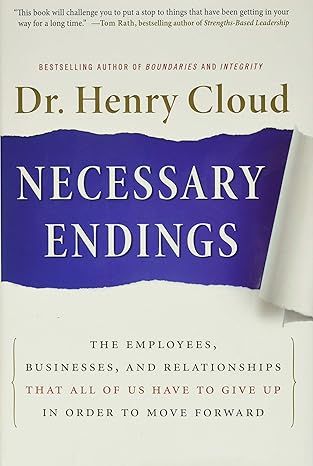
Necessary Endings: The Employees, Businesses, and Relationships That All of Us Have to Give Up in Order to Move Forward
4.7
-
2,598
$0.99
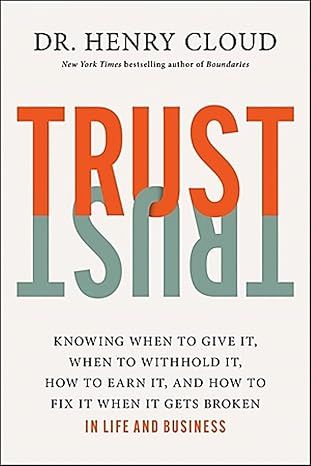
Trust: Knowing When to Give It, When to Withhold It, How to Earn It, and How to Fix It When It Gets Broken
4.8
-
626
$0.99
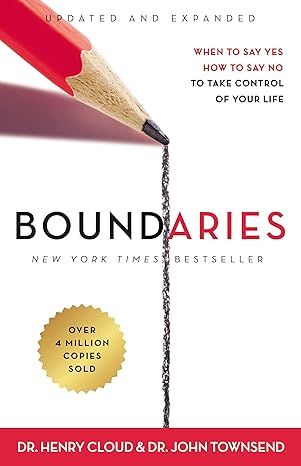
Boundaries Updated and Expanded Edition: When to Say Yes, How to Say No To Take Control of Your Life
4.7
-
23,877
$0.99
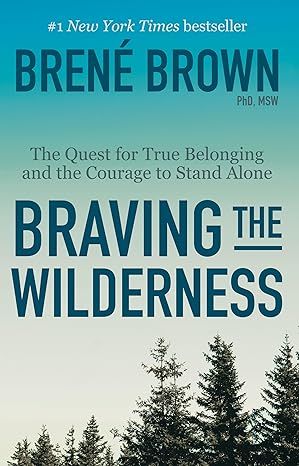
Braving the Wilderness: The Quest for True Belonging and the Courage to Stand Alone
4.6
-
14,403
$0.99
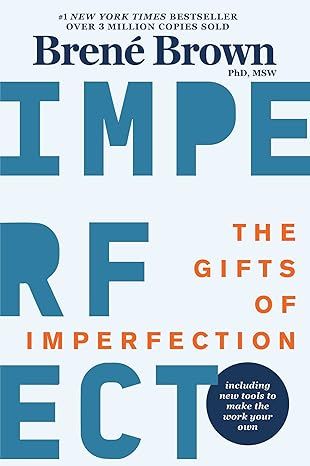
The Gifts of Imperfection: 10th Anniversary Edition: Features a new foreword and brand-new tools
4.7
-
42,318
$0.99
Best sellers
View all
The Tuscan Child
4.2
-
100,022
$8.39

The Thursday Murder Club: A Novel (A Thursday Murder Club Mystery)
4.3
-
155,575
$6.33

Sapiens: A Brief History of Humankind
4.6
-
140,302
$13.49

The Butterfly Garden (The Collector, 1)
4.3
-
88,556
$9.59

Things We Hide from the Light (Knockemout Series, 2)
4.4
-
94,890
$11.66

The Last Thing He Told Me: A Novel
4.3
-
154,085
$2.99

The Perfect Marriage: A Completely Gripping Psychological Suspense
4.3
-
143,196
$9.47

The Coworker
4.1
-
80,003
$13.48

First Lie Wins: A Novel (Random House Large Print)
4.3
-
54,062
$14.99

Mile High (Windy City Series Book 1)
4.4
-
59,745
$16.19

Layla
4.2
-
107,613
$8.99

The Locked Door
4.4
-
94,673
$8.53
